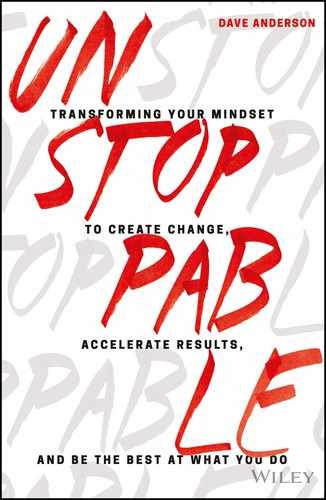Appendix
The Winslow Profiles for Identifying and Developing Potential Game Changers
by Eric Samuelson
In this season of technological wonder, the prophetic lyrics to Paul Simon's terrific 1986 song, “The Boy in the Bubble,” have entered the mainstream culture. Celebrity status has now been democratized. Every partially talented, wannabe playmaker is offered a chance at instant acclaim. One spectacular move, caught on camera, pushed, and retweeted to the excitement-addicted masses guarantees Andy Warhol's 15 minutes of fame to everyone. Thirty years ago, Simon and Warhol made independent, uncanny forecasts about our current culture. We are now living in the age they predicted.
Playmakers can actually look like principled game changers—for maybe a minute. The significant difference between the two is consistency. Who performs well even when the cameras are off? Who is willing to do the right thing simply because it's the right thing to do, regardless of the attention it garners? Who has the integrity to persevere? This is how character is tested and revealed.
Playmakers and game changers look an awful lot alike when they are in a peak-performance moment. Certainly there are some playmakers who can execute frequently enough that they appear to be game changers. They aren't actually displaying consistent peak performance, but have rather lucked into a series of successive opportunities that have allowed their massive skills to be publicly displayed. Such moments can occur whether one is an NFL wide receiver, an eloquent politician, or a professional sales consultant.
We need to scratch the psychological surface with a well-constructed assessment to detect whether we're dealing with a predictable pro or a momentary hero. Skill is valuable, but it's not enough. The world is filled with skilled amateurs who can't sustain high performance. Here are three contrasts our firm uses to distinguish the playmaker from the game changer:
- Narcissism versus selflessness: We market the powerful, deadly accurate Winslow Profiles to assist clients in hiring and development decisions. One vital trait we measure is “Conscientiousness.” High scores here reflect a selfless, moral, duty-bound attitude. Individuals who score low operate from a self-centered “What's in it for me?” thought pattern. When low scores in this trait are clustered with low scores in “Nurturance” and “Recognition,” we see a risk of narcissism. You can place a strong bet that an individual with low scores in those three traits is not an authentic game changer. Skill alone is not enough to overcome the selfish attitudes pervasive in such people.
- Miracles versus principles: Playmakers live for the miraculous moment. They are comets that light up the sky for a minute. Game changers, however, operate by principles. These folks are analogous to the North Star—predictable and permanent enough to permit ship captains to steer to safe harbor. Game changers deduce the truths that govern consistent, productive value creation and then they operate by those deductions. First, we determine the qualities needed to live by such principles. We subsequently identify patterns to determine who is likely to live that way. Low scores in personality traits like “Endurance,” “Coachability,” “Responsibility,” “Composure,” and “(Self-)Control” inform coaches and executives which players are likely to operate by momentary miracles rather than principles.
- Transactions versus covenants: The third quality of game changers is their view of commitments. These folks seem able to deliver what's asked, or they at least make valiant attempts to accomplish what they promise. They refrain from indulging their passions or offering excuses. That alone is a strong, valuable quality. However, in some cases, game changers rise above mere commitment by forming and honoring covenants. This is a transcendent quality that pushes way past the conditional. A covenant takes relationship off the table.
To some the term covenant may seem antiquated. After all, in a no-fault divorce culture, we have reduced covenantal marriage to a matter of convenience and mood swings. So much of our lifestyle has deteriorated to momentary alignments. But certain game changers already operate beyond the momentary, pay-for-play culture. They make long-lasting, unbreakable attachments that rise above the mere exchange of value. They are way past deal making. There's certainly nothing wrong with transactions. When I want to buy a movie ticket, a sandwich, or my groceries, I'm probably not looking for a long-term relationship with the guy at the counter. But we are wise to distinguish the temporary financial transaction from the deep, ordained connections we have with certain key people. Playmakers need not apply for covenantal relationships. They are too busy doing deals in the greenroom waiting for the cameras to roll. However, game changers who form covenants will at least have high scores in “Trust,” “Contentment,” and “Self-Confidence.” We can reasonably connect with such folks in forming a solid, lasting bond where relationship is off the table.
It's encouraging to know that psychology and technology have now matured and merged to a point where the personality traits and behaviors of playmakers versus game changers are predictable to a very high degree of probability.
---------------------------------------------------------------------
ERIC SAMUELSON is president of the Management Development Institute, a business consulting and personnel diagnostics service out of Richmond, Virginia. He has clients in 17 countries who rely on the incisive analysis offered by the Winslow Personality Assessment that he markets. He has seen both flash-in-the-pan, momentary, playmaker heroes and steady, reliable game changers. Each of these individuals has value at times, but it is vital for business executives to know the difference in advance. This highly validated psychometric tool allows Eric to offer rapid, accurate counsel to hundreds of decision makers. Because of the instrument's accuracy and objectivity, he is able to predict personnel behavior to a high degree of statistical accuracy. Eric can be reached at 804-798-3355 or [email protected].
